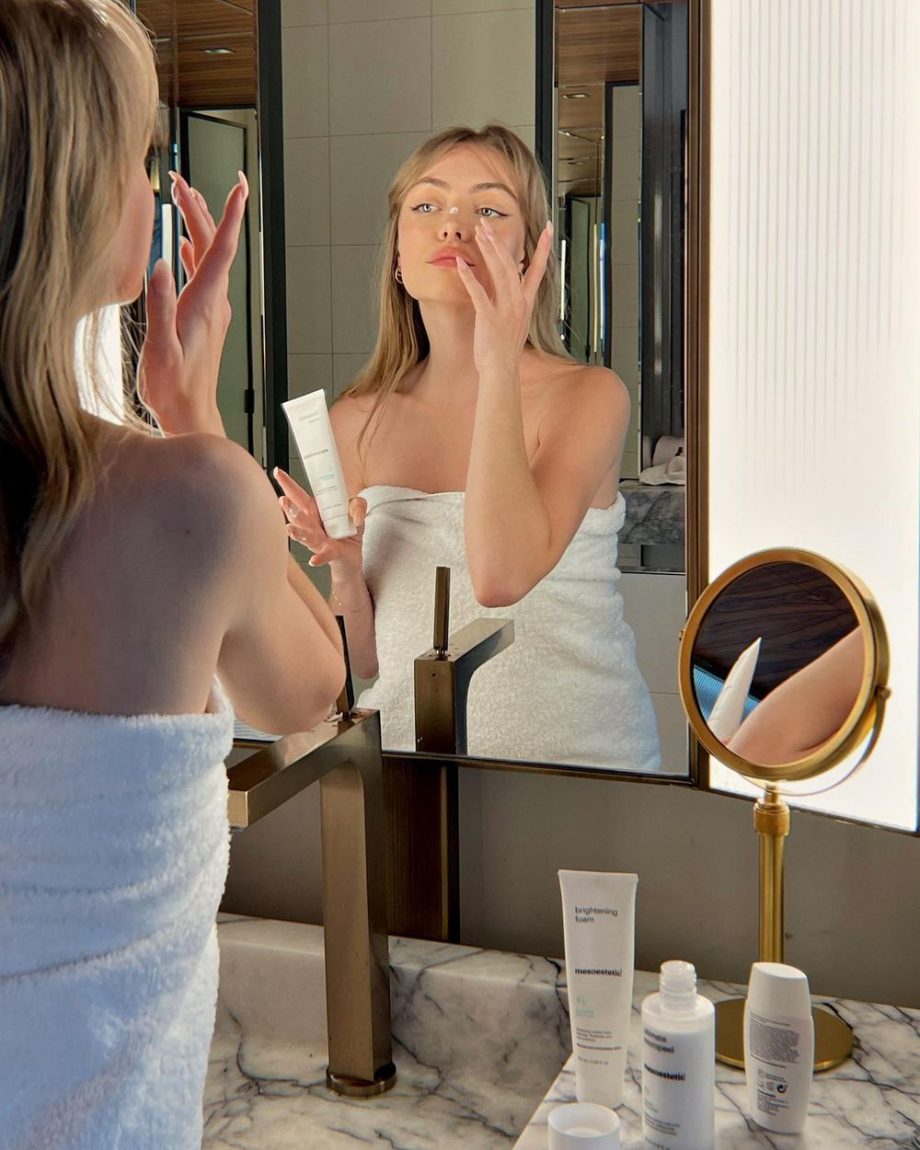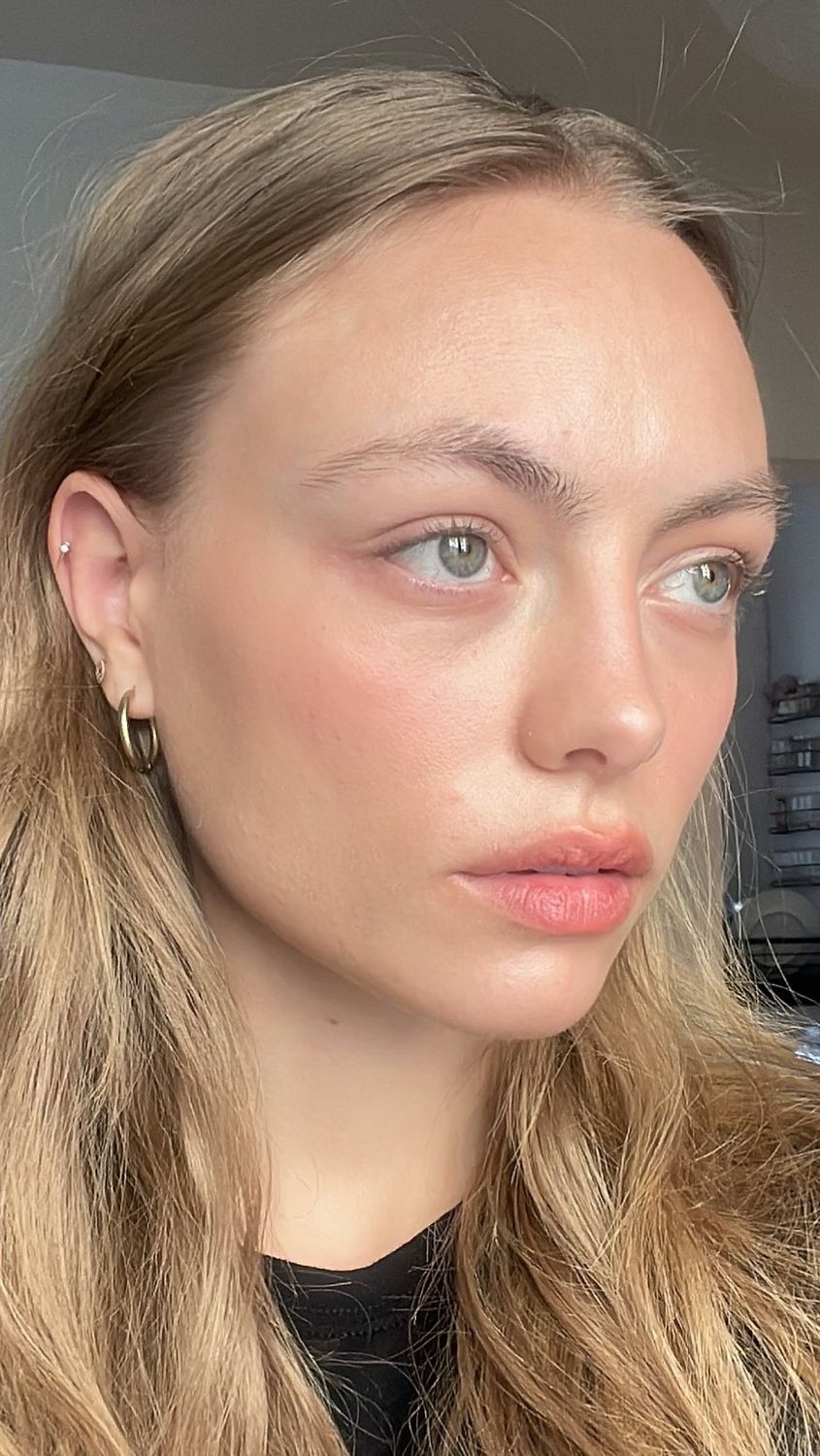Moisturizers are a must-have in any skincare routine. But with so many options, it can be tough to pick the right one. A common question: gel or cream? Both hydrate, but have different textures and advantages.
Gels are lightweight, watery, and absorb quickly. Great for oily or combination skin, as they don’t leave a heavy or greasy feeling. They also work well in hot, humid climates, providing a cooling sensation and helping control oil production.
Creams are thicker and provide more intense hydration. Suitable for dry or mature skin, as they lock in moisture for lasting hydration. They often contain nourishing ingredients like ceramides or oils, which repair the skin’s barrier and improve health.
It’s important to consider your skin’s needs when deciding between gel and cream moisturizers. A study by the Journal of Cosmetic Dermatology found that gel moisturizers were more effective at reducing transepidermal water loss than cream moisturizers in folks with normal to dry skin.

Definition of Gel and Cream moisturizers
What are gel and cream moisturizers? These two popular skincare products have distinct features.
Gel moisturizers are lightweight and absorb fast, great for oily/combination skin. They are water-based, and often formulated with hyaluronic acid & glycerin so they feel light and refreshing. They’re ideal for hot climates or those who prefer a weightless feel.
Cream moisturizers have a thicker consistency & more hydration, perfect for dry/mature skin. They have a creamy texture, and offer intense hydration and durable nourishment. Key ingredients like shea butter and jojoba oil help to lock in moisture.
Did you know that Gel and Cream moisturizers date back centuries? Egyptians used aloe vera gel for skin protection. Greeks used creams with olive oil to soothe their complexion.
Differences between Gel vs Cream moisturizers
Gel and cream moisturizers are not the same. Important distinctions can change your skincare routine. Gel moisturizers are lightweight, perfect for oily or combination skin. They have a cooling effect and soak in fast, leaving skin feeling hydrated. Cream moisturizers are thicker, perfect for dry or mature skin. They often have nourishing ingredients like shea butter or oils to moisturize and soften.
Gel moisturizers spread easily and absorb fast; no greasy residue! Their matte finish is ideal for those who prefer a non-greasy feel. Cream moisturizers take more massaging to absorb due to their thickness, but they provide long-lasting hydration.
Gel moisturizers are good for makeup. They blend well and create a smooth canvas for foundation. Cream moisturizers, while nourishing, may interfere with makeup if not absorbed into the skin in time.
My friend Sarah has combination skin. She used a cream moisturizer for years without knowing it was too heavy for her T-zone. Her dermatologist recommended a gel moisturizer and Sarah saw an immediate improvement – less oiliness in her T-zone and no dry patches on her cheeks.
The main difference is that gel is light & cooling, while cream is thicker & provides deeper hydration.
Factors to consider when choosing between Gel and Cream moisturizers
Picking a moisturizer? Consider these tips!
| Skin type: | Oily/acne-prone or dry/mature? |
| Ingredients: | Pick specific ones to address needs without reactions. |
| Climate: | How will it affect your skin’s hydration needs? |
| Test it out: | See if it works with your skin before committing. |
Gel moisturizers are lightweight and non-greasy, great for oily skin. Creams have a thicker consistency but provide more hydration for dry/mature skin. They often contain hyaluronic acid and aloe vera. Creams usually have richer ingredients like shea butter and oils, which may be too heavy for sensitive skin. In humid climates, gels help control oil and in drier climates, creams offer protection from the weather.
Whether you’ve got combination skin or just want to switch up your routine, gel and cream formulas can provide optimal results. Find the right balance between hydration and consistency for healthy, vibrant skin!
Benefits of using Gel moisturizers
Gel moisturizers are popular among travelers and skincare addicts. They’re lightweight, absorb quickly and leave a non-greasy feel. Perfect for oily skin types, they help to control oil production and avoid clogged pores. Plus, they have a cooling and soothing effect, ideal for hot climates or post-sun exposure.
Gel moisturizers often don’t contain heavy fragrances or irritants, making them suitable for sensitive types. And, they come in practical packaging – like pump bottles or tubes – so you can take them on the go.
Be careful with use though – too much can dry out the skin. Always ask your dermatologist before introducing a new product. AAD dermatologists recommend gel moisturizers as they hydrate acne-prone or oily skin, while reducing breakouts.
Benefits of using Cream moisturizers
French cream moisturizers can give your skin lots of benefits. They provide long-lasting hydration and nourishment, leaving it soft and smooth. Here are the advantages of using cream moisturizers:
- Super Hydration: Creams have emollients and humectants – like Shea butter and glycerin – that lock in moisture and stop dryness.
- Long-lasting Moisture: Creams are thicker and form a barrier on your skin, stopping moisture from evaporating.
- Nourishing and Repairing: Vitamins, antioxidants, and oils in cream moisturizers help nourish and repair skin cells.
- Gentle on Sensitive Skin: Creams soothe and calm skin without causing redness.
- Perfect for Dry Skin Types: Cream moisturizers replenish lost moisture and make skin feel smooth.
Plus, cream moisturizers can target anti-aging concerns if they have collagen-boosting ingredients like peptides or hyaluronic acid. To get maximum benefit:
- Cleanse first: Clean your face to remove dirt and oil before applying the cream.
- Apply on damp skin: Apply the cream onto damp skin so it absorbs better.
- Choose the right formula: Consider skin type, concerns, and climate when picking a cream.
- Massage it in: Gently massage the cream onto your face in circular motions for increased absorption.
Using cream moisturizers can improve your skin. Choose a formula that suits you and follow the suggestions above to get the best results.
How to use Gel and Cream Moisturizers Effectively
Gel and cream moisturizers are essential for healthy, hydrated skin. Here’s a 6-step guide to maximize their potential:
- Cleanse your face. Use a gentle cleanser to get rid of dirt, oil, and impurities.
- Choose a moisturizer based on your skin type and concerns. Gel formulas are lightweight and refreshing – ideal for oily or combination skin. Creams are best for dry or mature skin.
- Apply a small amount. Massage it into your skin using upward strokes and avoid wasting the product.
- Focus on problem areas. Pat the moisturizer into those areas for better absorption.
- Allow time for absorption. Let the product work its magic before applying other skincare steps or makeup.
- Use sunscreen during the day. Protect your skin with sunscreen over your moisturized face.
Consistency is key to get the most out of your moisturizer routine. Follow these tips for beautiful, nourished skin that will make heads turn!
Popular French Moisturizer Brands
Gel and cream moisturizers are a must for healthy and hydrated skin. Check out these popular brands:
- Clarins: Offering both gel and cream, Clarins’ high-end formulas are suitable for all skin types.
- Darphin: Much-loved for their lightweight gel moisturizers that provide hydration without a greasy feel.
- La Roche-Posay Effaclar Mat: Perfect for oily or acne-prone skin, this brand’s gel moisturizer helps regulate oil while moisturizing.
Gel moisturizers are usually lighter than creams. They absorb quickly, making them ideal for oily or combination skin. Creams are thicker and provide longer hydration for dry or mature skin.
Choose the right one for you. Consider your skin type, needs (like dryness or acne) and preferences. Oily or acne-prone skin should pick a gel, while dry or mature skin will benefit from a cream.
What to Know Before Buying a Gel or Cream Moisturizer
1. What is the difference between gel and cream moisturizer?
Gel and cream moisturizers differ in their consistency and formulation. Gel moisturizers have a lighter, water-based texture, while cream moisturizers are thicker and have an oil or emollient base.
2. Which skin types are better suited for gel moisturizers?
Gel moisturizers are generally more suitable for oily or combination skin types. They provide lightweight hydration without leaving a greasy or heavy feeling on the skin.
3. Are cream moisturizers more hydrating than gel moisturizers?
Cream moisturizers generally provide more intense hydration due to their thicker consistency and higher oil content. They are often recommended for dry or mature skin types that require extra nourishment.
4. Can gel moisturizers be used under makeup?
Yes, gel moisturizers are often preferred as a makeup base due to their lightweight texture. They absorb quickly into the skin and provide a smooth canvas for makeup application.
5. Do gel or cream moisturizers work better for sensitive skin?
Both gel and cream moisturizers can work well for sensitive skin, depending on the individual’s specific needs. Gel moisturizers may be preferred for their non-comedogenic properties, while cream moisturizers can offer soothing benefits with added emollients.
6. Can I interchange gel and cream moisturizers in my skincare routine?
Yes, you can interchange gel and cream moisturizers based on your skin’s requirements and the climate. Gel moisturizers may be more suitable for hot and humid weather, while cream moisturizers can provide extra nourishment during winter or in dry climates.
Conclusion
Gel and cream moisturizers both have their special benefits.
Gel is lightweight and absorbs fast, while cream is more hydrating and nourishing.
People with oily or acne-prone skin often opt for gel moisturizers. They’re lightweight, so they soak in quickly without any greasy residue. Gels are highly suitable for combination skin, too. They provide targeted hydration without being slick.
Creams are generally better for dry or mature skin, due to their richer texture and ability to deeply moisturize. Cream moisturizers are thicker and offer more hydration, so they’re great for parched skin. The dense texture helps seal in moisture and revitalize the complexion.
Hybrid formulas are also available. They mix the best of both worlds – lightweight feel and intense hydration. These products can cater to various types of skin and create custom skincare solutions.
Consider the climate you live in too. In hot and humid weather, gel moisturizers refresh the skin and keep it cool. But cream moisturizers may be too heavy and might lead to oiliness or discomfort. In cold and dry conditions, however, cream moisturizers can give extra hydration and protection.
Gel and cream moisturizers also differ in formulation. Gels contain more water and ingredients like hyaluronic acid, while creams are oil-based and may include shea butter or ceramides.
In the past, creams were the go-to option. Now, with skincare trends shifting towards lighter formulations, gels are becoming more popular.
The decision between gel and cream is up to you at the end of the day! Regardless of what you choose, regular application of moisturizer is key to healthy, hydrated skin.



